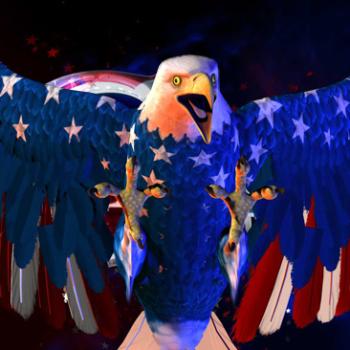(What would Don Johnson do?)
Some 84 Hollywood stars have taken a controversial political stand: They're in favor of democracy and opposed to terrorism (article here).
Well, good. Mighty white of them.
(Julia and Steve M. chime in on the celebrity-political complex.)
Here's what the celebrity signatories had to say:
We the undersigned are pained and devastated by the civilian casualties in Israel and Lebanon caused by terrorist actions initiated by terrorist organisations such as Hezbollah and Hamas. If we do not succeed in stopping terrorism around the world, chaos will rule and innocent people will continue to die. We need to support democratic societies and stop terrorism at all costs.
There's some fuzzy question-begging going on in there regarding "causes," and it ascribes far too much power to terrorists — "chaos will rule" — suggesting they are capable of seizing that which we could only surrender to them voluntarily, but these things are actually the least objectionable parts of this ad.
The most objectionable thing about this ad is that it "takes a stand" for something that is wholly unobjectionable.
It is essentially saying this: Terrorism Bad. Democracy Good.
The technical term for such a statement is: "Well, duh."
If you could take a poll in which respondents could be assured of the good faith of the pollster, 99.999999 percent of Americans would agree with these sentiments.
This ad therefore cannot be what it purports to be: an attempt to persuade or to influence public opinion. It cannot even be regarded as an attempt to reinforce public opinion, because if it were really interested in doing so, it wouldn't take such pains to position itself as if it were somehow at odds with what are in fact unanimous, universal sentiments.
The ad, then, is dishonest. It portrays itself as being about one thing, when it is really about something else.
It pretends it is intended to influence public opinion about terrorism and democracy, but really it is intended to influence public opinion about Michael Douglas, Bruce Willis, Nicole Kidman, Sylvester Stallone and Don Johnson.
It is, in other words, not about persuasion, but about positioning, about PR. This is not an example of celebrities trying to use their celebrity to weigh in on a political dispute (which they have as much right to do as anybody else). It is an example of celebrities using an undisputed political statement to enhance their own celebrity.
This is the sort of thing Evelyn Waugh had in mind when he said, "Politicians are not people who seek power in order to implement policies they think necessary. They are people who seek policies in order to attain power."












